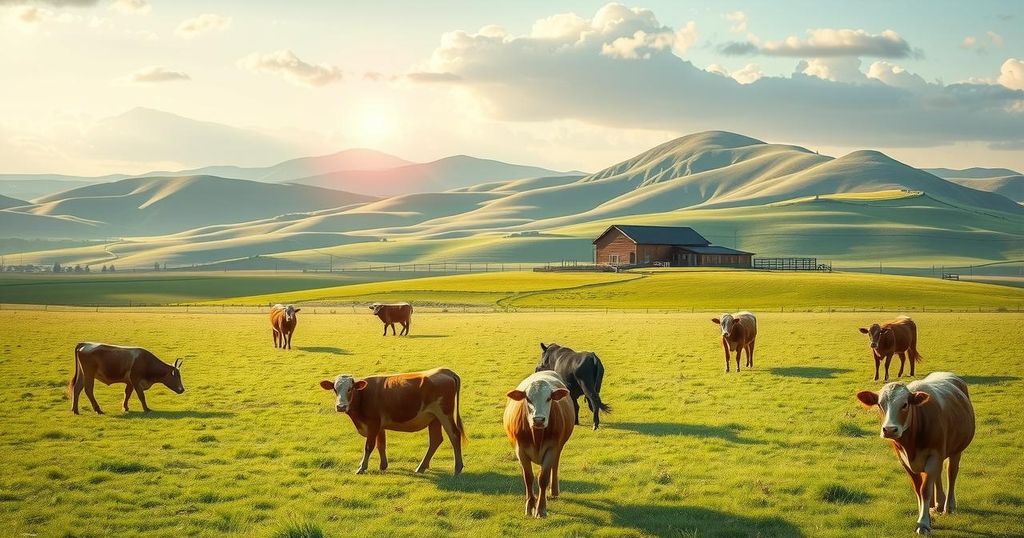Argentina has lifted a 50-year ban on live cattle exports through Decree 133/25, published on Wednesday by President Javier Milei. The decree aims to open market opportunities for the livestock sector, which has faced significant trade restrictions. This move aligns Argentina with global export practices and addresses specific needs in international markets, such as Turkey’s unique slaughter methods.
On Wednesday, Argentine President Javier Milei’s Decree 133/25 was published in the Official Gazette, effectively lifting a 50-year ban on the export of live cattle. This ban, instituted in 1973, was originally linked to supply challenges. The current initiative, driven by the Libertarian Government, aims to explore new market opportunities for Argentina’s livestock sector.
The global market for live cattle is substantial, with nations such as Australia, France, and Canada each exporting over $1 billion annually. In South America, Uruguay exports approximately 250,000 heads of cattle each year, while Brazil exports around 750,000. This opens the door for Argentina to enhance its presence in such markets.
Exporting live cattle holds significance for countries with specific slaughtering practices, like Turkey, which prohibits the slaughter of castrated animals. The recent decree is intended to enhance trade opportunities for Argentina and alleviate the longstanding restrictions that have hindered its export potential.
Deregulation Minister Federico Sturzenegger articulated the necessity of this move, stating, “Live cattle are also important because they are a product sought by societies that have particular slaughter methods (Turkey, for example, does not slaughter castrated animals). Excluding us from these markets for free is nonsense.” He further remarked on the extensive trade restrictions in discussions related to the exchange rate, emphasizing the need for reform.
The recent decision by the Argentine government to lift the ban on live cattle exports marks a significant shift in trade policy and positions Argentina to capitalize on new market opportunities. This development not only responds to specific international demands but also aims to revitalize a crucial sector of the economy that has faced numerous restrictions over the past decades.
Original Source: en.mercopress.com




